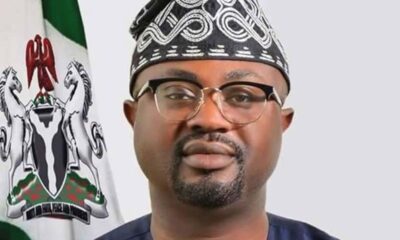News
Insecurity: How to make state police effective, by Senate leader
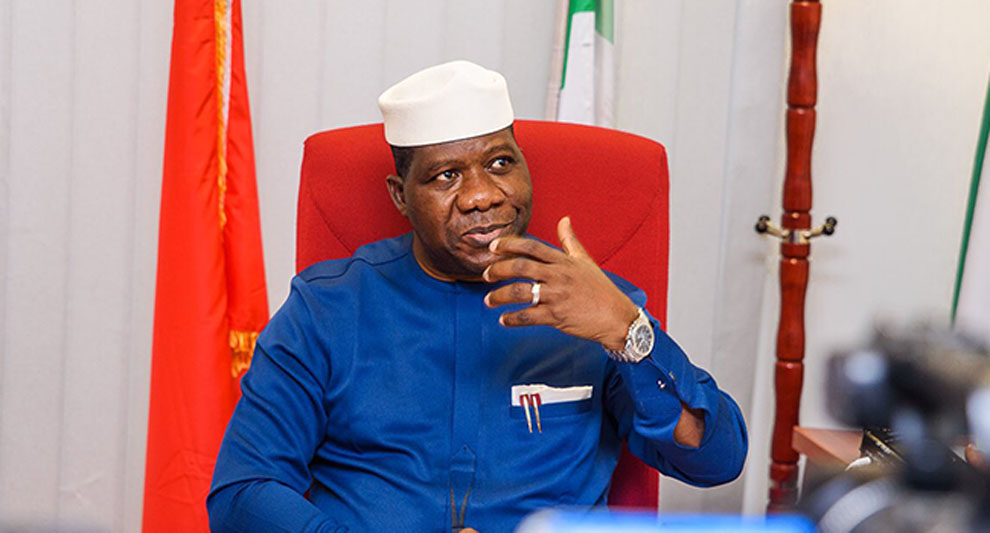
Insecurity: How to make state police effective, by Senate leader
Senate leader, Opeyemi Bamidele, has said that the establishment of state police will go a long way to addressing the insecurity across the country.
Bamidele, who stated this in Abuja on Monday in a statement issued by his media office described the current state of policing in Nigeria as “ailing and dysfunctional.”
The statement read in part, “We must admit that the system can no longer guarantee the dignity of human lives and the security of collective assets considering our security dynamics in the Fourth Republic.
“The proposal for the creation of state police has been a subject of intense debate in the last decade or more.
“This, in part, can be attributed to the rise of armed attacks orchestrated by diverse interests either pursuing divisive agendas or seeking predatory ends in virtually all geopolitical zones,” he said.
He noted that Nigeria, one of the world’s fastest-growing nations in terms of population, could not continue to operate a centralised policing system.
READ ALSO:
- 78 suspected internet fraudsters arrested in Enugu, Imo
- Kano mosque attack: Principal suspect pleads guilty, remanded
- Naira gains marginally at N1,490/$ on parallel market
“Such a policing model cannot meaningfully address existential threats to our internal cohesion and stability. Unlike in 1979, when we had a population of 70.75 million, Nigeria is now a federation of about 229 million people and is currently the world’s sixth-biggest country.
“This is as shown in the demographic data of the United Nations. Contrarily, as revealed in the recent presentation of the Inspector-General of Police, Kayode Egbetokun, Nigeria has a police-citizen ratio of one to 650.
“This ratio is a far cry from a ratio of one to 460, which, according to the United Nations, is a minimum requirement for every sovereign state or territory worldwide,” the Senate leader said.
The lawmaker further noted that the ongoing review of the 1999 Constitution would allow stakeholders to interrogate the nation’s security framework and take a position on the desirability or otherwise of state police in the country.
“We must go about it (state police) with a clear sense of self-realisation. We must, first and foremost, realise that the present police system is ailing and dysfunctional.
“We must also admit that the system can no longer guarantee the dignity of human lives or the security of collective assets.
“With this admission, it is evident that the option of adopting state police is no doubt inevitable as an antidote to the diverse security challenges that threaten us as a federation,” he said.
The Senate leader further said that as the debate for a more efficient police model continued, the National Assembly was under obligation to provide a legal framework with clearly defined preconditions.
“Sub-national governments must conform to the preconditions before establishing their policing formation. The role of all 36 state Houses of Assembly is equally indispensable in the quest to adopt the decentralised police system,” he said.
The bill for the establishment of the state police is currently in the National Assembly. In February, the House of Representatives passed the bill for the second reading.
The bill, sponsored by the Deputy Speaker of the House, Benjamin Kalu and 14 others, seeks to alter the relevant Sections of the 1999 Constitution to pave the way for states to establish their policing outfits.
Insecurity: How to make state police effective, by Senate leader
Punch
News
Why governors’ forum is silent on Rivers emergency, by DG
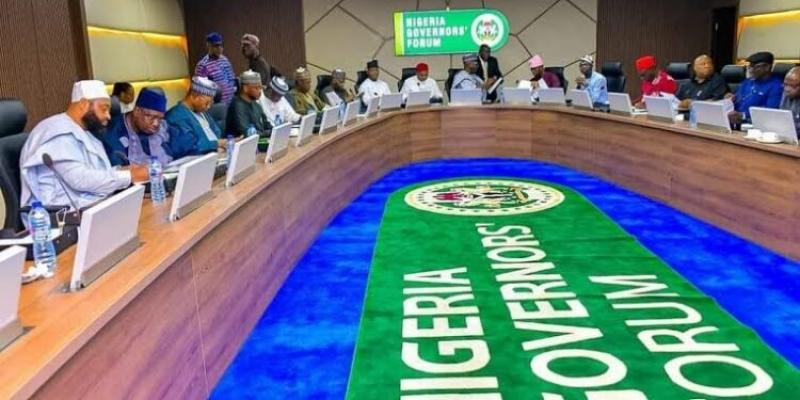
Why governors’ forum is silent on Rivers emergency, by DG
The Nigeria Governors’ Forum (NGF) yesterday attributed its neutral position on the recent declaration of a state of emergency in Rivers State to the need to steer clear of taking positions that may alienate members with varying political interests.
Taking positions on contentious partisan issues, the NGF said, would not augur well for it, especially in view of its past experience in fundamental division.
Notwithstanding, the declaration of the state of emergency by President Bola Tinubu yesterday generated more kudos and knocks from across the country.
Special Adviser to the President on Senate Matters, Senator Basheer Lado, said the action of the president was meant to ensure protection of lives and restoration of law and order in the state, while the President’s Special Adviser on Media and Public Communications, Sunday Dare, said his principal was required to “avert needless harm and destruction .”
National Publicity Secretary of the ruling All Progressives Congress (APC), Felix Morka, said Tinubu, by his action, cleared what had manifested as a constitutional crisis in Rivers state.
But former President Goodluck Jonathan saw it from a different perspective.
READ ALSO:
- Senate didn’t get 2\3 majority for Tinubu emergency rule in Rivers –Tambuwal
- FG destroys another 200 containers of expired drugs
- Rivers court bars woman from answering ex-husband’s name
He described “abuse of office and power by the three arms of government in the country“ as a dent on Nigeria’s image.
The NGF, in a statement by its Director General Abdulateef Shittu, said it is essentially “an umbrella body for sub-national governments to promote unified policy positions and collaborate with relevant stakeholders in pursuit of sustainable socio-economic growth and the well-being of the people.”
It added: “As a technical and policy hub comprising governors elected on different platforms, the body elects to steer clear of taking positions that may alienate members with varying political interests.
“In whatever language it is written, taking positions on contentious partisan issues would mean a poor sense of history — just a few years after the forum survived a fundamental division following political differences among its members.
“Regardless, the Forum is reputed for its bold positions on governance and general policy matters of profound consequences, such as wages, taxes, education and universal healthcare, among others.”
It asked for “the understanding of the public and the media, confident that appropriate platforms and crisis management mechanisms would take care of any such issues.”
Why governors’ forum is silent on Rivers emergency, by DG
News
Rivers: Tinubu acted to save state, economy, says Karimi
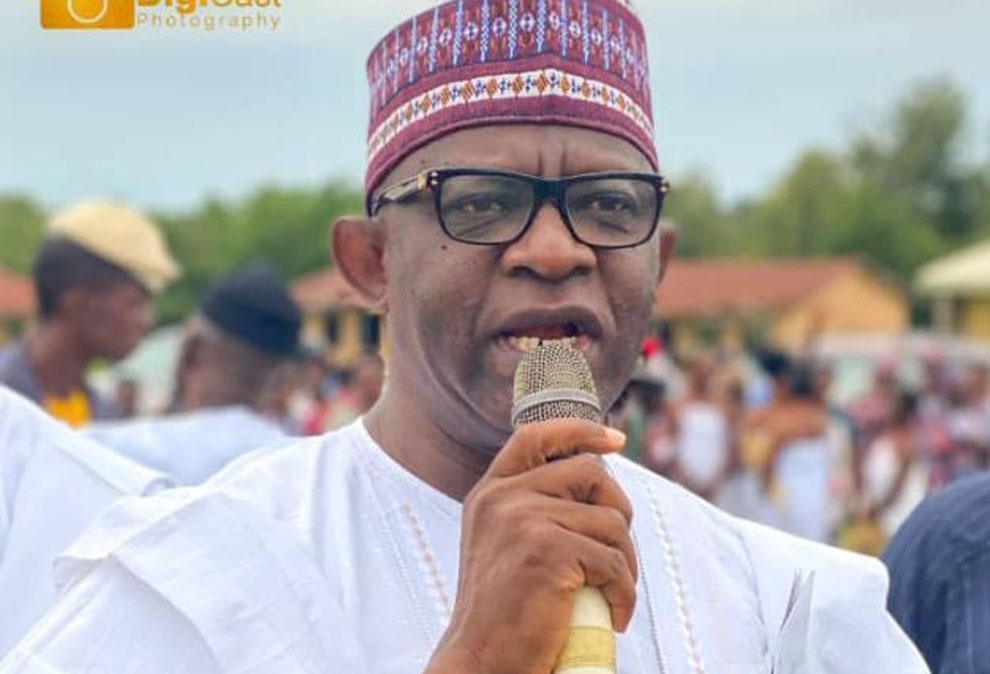
Rivers: Tinubu acted to save state, economy, says Karimi
Chairman of the Senate Services Sunday Karimi has hailed President Bola Tinubu for the decision to declare a state of emergency in Rivers State.
He told reporters on Friday in Abuja that the President acted in the best interest of the State and Nigeria, having taken his decision in compliance with the Constitution.
“No President or government worth a name, will fold its arms and watch a political situation deteriorate to what we saw unfolding in Rivers State.
“We saw that bombing of pipelines had begun, and the security situation was getting worse with the tension everywhere”, Karimi stated.
Karimi, who represents Kogi-West on the ticket of the All Progressives Congress (APC), recalled the “fatherly role” Tinubu had played in the crisis since 2023 in a bid to get the Minister of the Federal Capital Territory (FCT), Nyesom Wike, and suspended Governor Siminalayi Fubara to reach an understanding, to no avail.
He explained: “We were all here in 2023 when Mr President called that truce meeting at the Aso Rock Villa. There was the eight-point agenda for settlement reached between the factions.
“When Nigerians expected that progress should be made to achieve peace, things started deteriorating considerably to a point where the governor demolished the House of Assembly building and administered the state with only three legislators.”
READ ALSO:
- Oluwo accuses Ooni of plotting to dethrone him
- Natasha: Court blocks recall attempt, stops INEC
- US ends legal status for 500,000 immigrants
Karimi observed that with the recent judgment of the Supreme Court, which gave the upper hand to the 27 lawmakers loyal to the camp of the FCT Minister, matters merely got worse in the State as the lawmakers were set to impeach the Governor.
“What did you expect would be the implications? There would have been more destruction, killings and economic losses for the country.
“With the bombings that had already started, it was a matter of time before the whole state would be engulfed in flames. No responsible President would sit, arms folded, and allow that to happen “ he added.
The senator further argued that it took “painstaking efforts” by the administration to raise daily crude oil production to around 1,800 barrels, noting that Nigeria’s economy was already “witnessing a rebound under the renewed hope projects of the government.”
“Allowing the situation in Rivers to get worse before he would act, wouldn’t have helped the state or Nigeria as a country in any way.
“Mr. President intervened at the right time, and his actions are covered by law,” he said.
Karimi also spoke on the emergency declaration in Borno, Yobe, Adamawa and a couple of other states by former President Goodluck Jonathan without removing the Governors from office or suspending the state assemblies.
According to him, the case with those States was not generated by political crises but rather security concerns.
“So, I will advise those comparing the two scenarios to remember that one was purely about security threats resulting from the insurgency caused by Boko Haram, while that of Rivers is clearly political.
“It was the proper thing to do to suspend the political actors in the two factions to allow for tensions to diffuse. Nigerians should appreciate the President for the action he has taken so far,” he stated.
Sen. Karimi also noted that there was no cause for alarm as the National Assembly had indicated that the emergency rule could be reviewed as soon as there were signs that things could quickly normalise in Rivers State.
Rivers: Tinubu acted to save state, economy, says Karimi
News
Just in: Tinubu swears in Rivers Sole Administrator Ibas
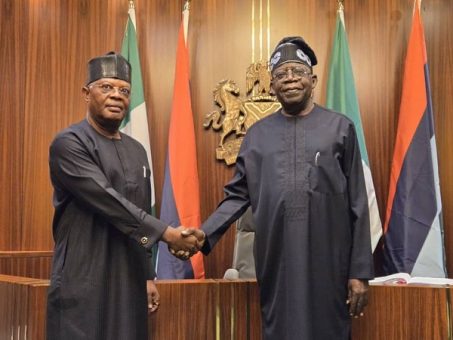
Just in: Tinubu swears in Rivers Sole Administrator Ibok-ete Ibas
President Bola Tinubu has sworn in Vice Vice Admiral Ibok-ete Ibas (Retd.) as the Sole Administrator of Rivers State.
The administrator was sworn in on Wednesday after a short meeting with the President.
Tinubu announced the appointment of the retired naval chief at a nationwide broadcast on Tuesday, when he declared a state of emergency in Rivers State and suspended Governor Siminalayi Fubara, Deputy Governor, Ngozi Odu, and the state House of Assembly members.
The President said his decision was based on Section 305 of the 1999 Constitution, saying he could not continue to watch the political situation in Rivers escalate without taking concrete action.
The suspension of Fubara and other elected representatives has been rejected and condemned by many eminent Nigerians, legal luminaries, groups such as Atiku Abubakar, Peter Obi, Femi Falana, the Labour Party (LP), the Peoples Democratic Party (PDP) and the Nigerian Bar Association.
However, the emergency rule has been praised by the pro-Nyesom Wike Assembly led by Martins Amaewhule, accusing Fubara of contravening the Supreme Court ruling on the political situation in the state.
Ibas was the Chief of Naval Staff from 2015 to 2021.
He is from Cross River State where he had his early education.
The new sole administrator went to the Nigerian Defence Academy in 1979 from where he proceeded to have a successful career in the Navy, rising through the ranks to the very top.
He is a member of the Nigerian Institute of International Affairs (NIIA) and the Nigerian Institute of Management.
President Muhammadu Buhari who appointed him as Chief of Naval Staff conferred him with the National Honour of Commander of the Federal Republic (CFR) in 2022.
-

 metro3 days ago
metro3 days agoNatasha: Court blocks recall attempt, stops INEC
-

 metro20 hours ago
metro20 hours agoCourt refers Ojukwu property case to alternative dispute resolution
-

 Entertainment3 days ago
Entertainment3 days agoI didn’t snatch Asake’s mother from her husband -Musibau Alani
-
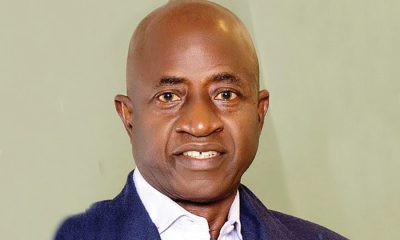
 Sports3 days ago
Sports3 days agoOdegbami speaks on Osimhen breaking his 44-year goals record
-

 Entertainment2 days ago
Entertainment2 days agoSome ladies in movie industry ready to sleep their way to fame — Jide Kosoko
-

 metro3 days ago
metro3 days agoOluwo accuses Ooni of plotting to dethrone him
-

 metro2 days ago
metro2 days agoPresidency blasts Jonathan, Soyinka over comments on emergency rule in Rivers
-

 metro3 days ago
metro3 days agoBoko Haram attacks military base in Adamawa









